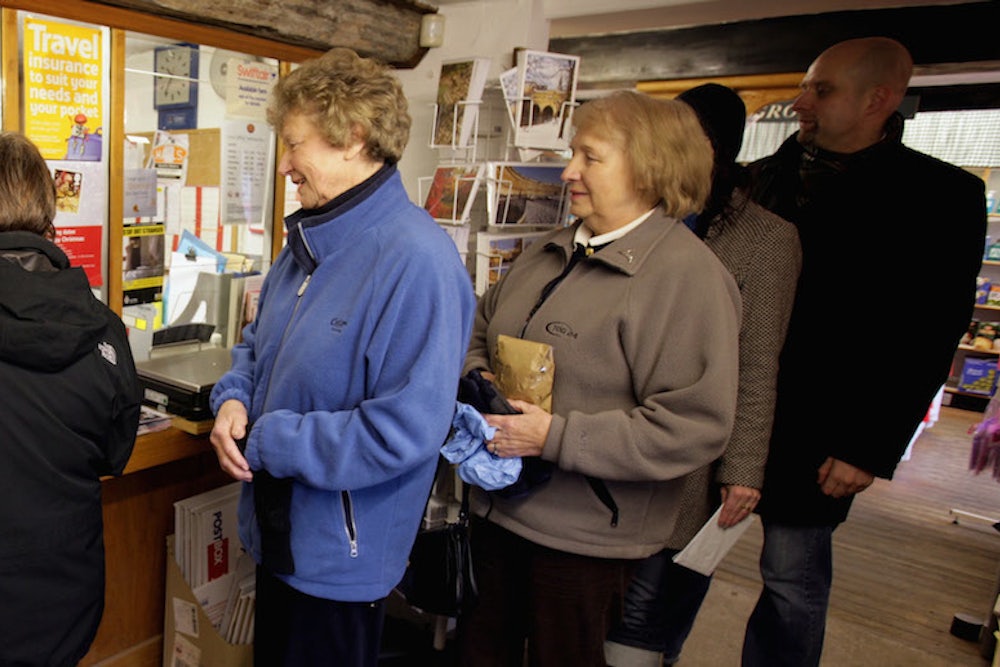Back in Netflix’s early years, users baffled by the word “queue” used to call customer service to ask, “What’s my kway-way?” recalls Netflix communications director Joris Evers. This isn’t a question Netflix hears much anymore—and they can probably take some credit for that.
Not so long ago, the word “queue” would have sounded out of place outside the tech world or the United Kingdom, but it seems to be cropping up more and more in an American context. In the past month alone, the New York Times has used “queue” in reference to Fort Lee traffic, SXSW registration, and patrons of a San Francisco restaurant. Just last week, the Washington Post used it in an otherwise unremarkable story about new security lanes at Reagan National Airport: Before transport authorities decided to build new lanes, Lori Aratani wrote, the “long narrow hallway” at Terminal A “limited the number of passengers who could queue for screening.”
I can't prove that Netflix is responsible. But as of January of this year, the company had 33 million subscribers in the U.S. That’s 33 million Americans who add the films they want to watch to a virtual “queue.” In Google searches originating in the U.S. since 2004, the word most commonly associated with “queue” is “Netflix,” though it might get some competition: Hulu has introduced its own “queue” function, and Amazon has adopted the term, too, inviting users to advertise the books they plan to read on a “Book Queue.” In 2011, a New York Times reader asked the site’s “Gadgetwise” blog how to create a “queue” of YouTube clips.
“Queue” has been commonplace in computing, in both British and American English, since the 1960s. “What you're seeing is the surfacing of tech jargon,” said Grant Barrett, co-host of A Way with Words, a nationwide public radio show about language. “‘Queue’ has long been used in computer-programming to refer to a series of processes, tasks, or actions that happen, or will be run, one after another… Outgoing mail is added to a message ‘queue.’ Calculations are ‘queued’ to be run by a computer's processor.”
“Even before Netflix, Americans would come across ‘printer queues,’” said Lynne Murphy, a linguist at the University of Sussex.
The increasingly fluid channels between British and American media probably also played a role in the popularization of “queue.” Even if it grew out of computer jargon and was popularized by the likes of Netflix, it’s coming to be used in the more traditional English sense of waiting in line.
According to the Oxford English Dictionary, the first usage of “queue”—as “a line or sequence of people, vehicles, etc., waiting their turn to proceed, or to be attended to”—appears in the Scottish historian Thomas Carlyle’s 1837 The French Revolution: A History. All ten of the quotes the OED editors chose to represent the history of the word “queue,” from 1837 to 2005, are from English, Irish or Scottish authors. By OED definition, the word is “chiefly British.”
“The traffic between American English and British English is a lot heavier than the traffic between American English and any other language,” said University of Colorado Boulder lexicographer Orin Hargraves. “A lot more words travel back and forth and get established in the other dialect than they ever did before, mainly because of media and the Internet.”
But in Netflix's case, the idea to use "queue" didn't come from media or the Internet. Evers told me it was the brainchild of Neil Hunt, the company's chief product officer. His country of origin? England.
